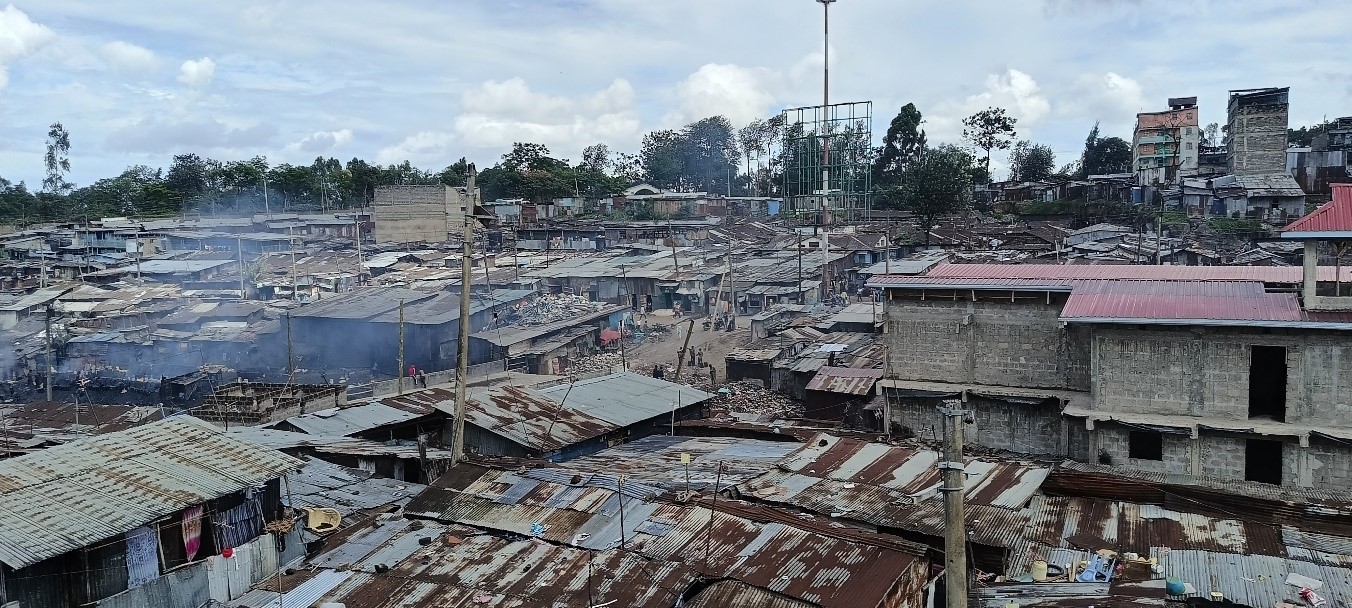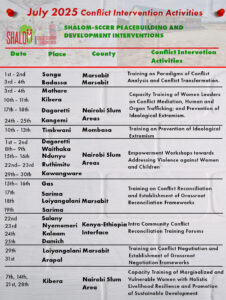By: Jacinta Nyambura BA (MA Candidate),
In the shadows of some of Nairobi’s bustling ten (10) urban informal settlements and slums accommodating a population of over 2.5 million people, a sinister trade thrives – human and organ trafficking. Defined by the Protocol to Prevent, Suppress and punish trafficking in Persons, especially women and children- Palermo Protocol as the recruitment, transportation, transfer, harbouring or receipt of persons by means of the threat or use of force or other forms of coercion, of abduction, of fraud, of deception, of the abuse of power or of a position of vulnerability or of the giving or receiving of payments or benefits to achieve the consent of a person having control over another person, for the purpose of exploitation. Exploitation shall include, at a minimum, the exploitation of the prostitution of others or other forms of sexual exploitation, forced labour or services, slavery or practices similar to slavery, servitude or the removal of organs. These violations rob individuals of their autonomy and infringe upon their universal human rights to freedom, safety, and dignity.
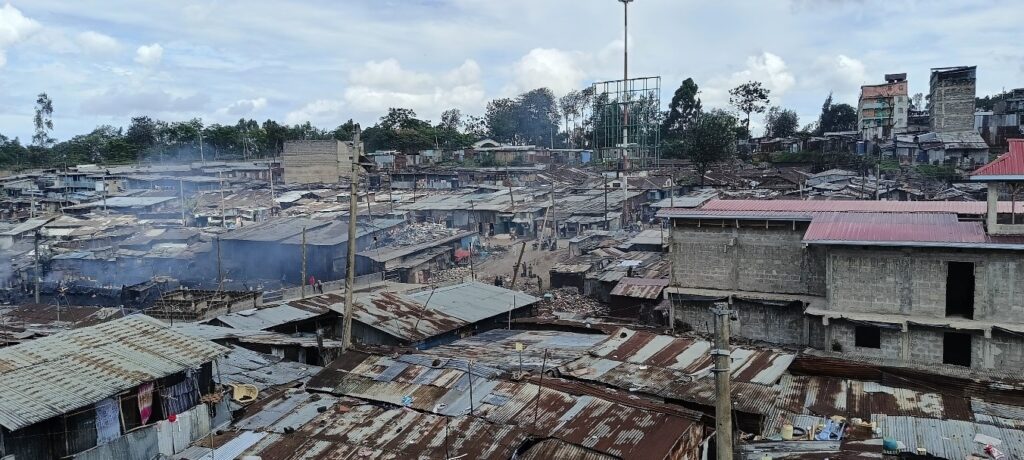

In response to this pressing issue, Shalom-SCCRR, under the visionary leadership of Rev. Dr. Patrick Devine, has embarked on a critical initiative to combat human trafficking per the stipulations of Article 9(1)(a) of the Palermo Protocol. Recognizing the urgent need for intervention, particularly in communities where vulnerability runs high, Shalom-SCCRR launched a comprehensive human trafficking module aimed at empowering locals with the knowledge and skills needed to identify, prevent, and respond to trafficking incidents.
The backdrop against which this initiative unfolds is Shalom’s steadfast commitment to addressing violence against women and children. It’s here that the intersection between human trafficking and the plight of vulnerable women becomes starkly evident. One of the key components of the Shalom-SCCRR structure is the project in the Shalom Empowerment Center (SEC) Addressing violence against women and children.
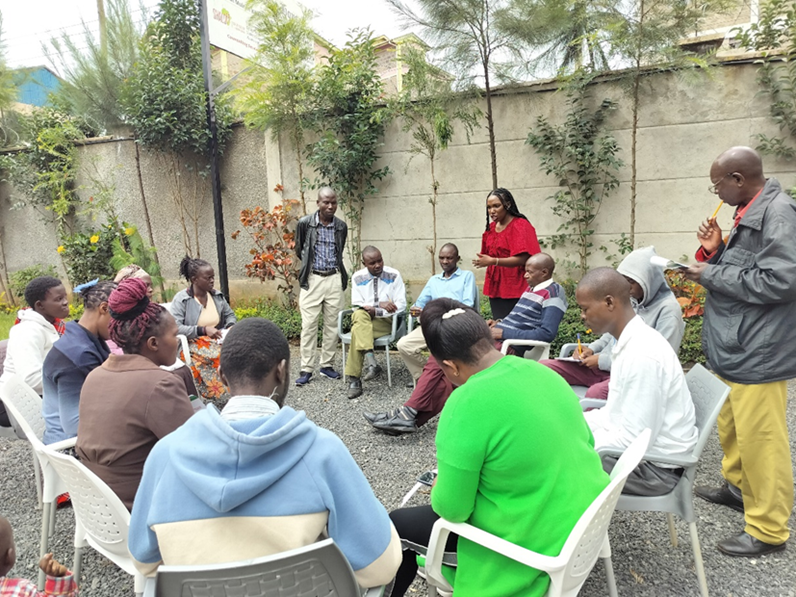
In the sprawling slums of Kawangware, Mathare, and Kibera, the scourge of human trafficking manifests as a relentless predator, preying upon the most vulnerable members of society: Pregnant girls and women with newborn babies, often grappling with dire circumstances and limited resources, become prime targets for human traffickers seeking to exploit their vulnerabilities. Pregnant women, already burdened by the challenges of poverty and lack of access to healthcare, find themselves trapped in a web of desperation.
Without adequate support systems or economic opportunities, they become easy targets for human traffickers who exploit their vulnerabilities with ruthless efficiency. The stark reality is that in the face of extreme poverty and hopelessness, the prospect of selling their own babies becomes a tragically viable option for some. The cycle of exploitation perpetuates itself as each new victim falls prey to the same forces of manipulation and coercion. Urgent intervention is imperative to break this cycle and safeguard the lives and dignity of those most at risk in these marginalized communities.
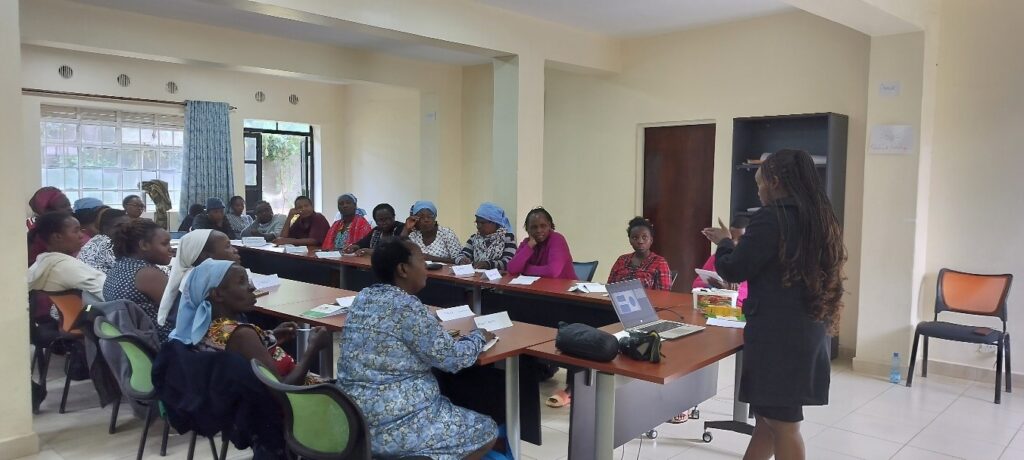
The need for community-based interventions, like Shalom’s human and organ trafficking module, cannot be overstated. By equipping community members with the tools to recognize and combat trafficking, the initiative protects vulnerable individuals and fosters community resilience and cohesion. Empowerment lies at the heart of this endeavour. By arming locals with knowledge about their rights and the tactics employed by traffickers, Shalom-SCCRR aims to disrupt the cycle of exploitation and create a safer, more just society.
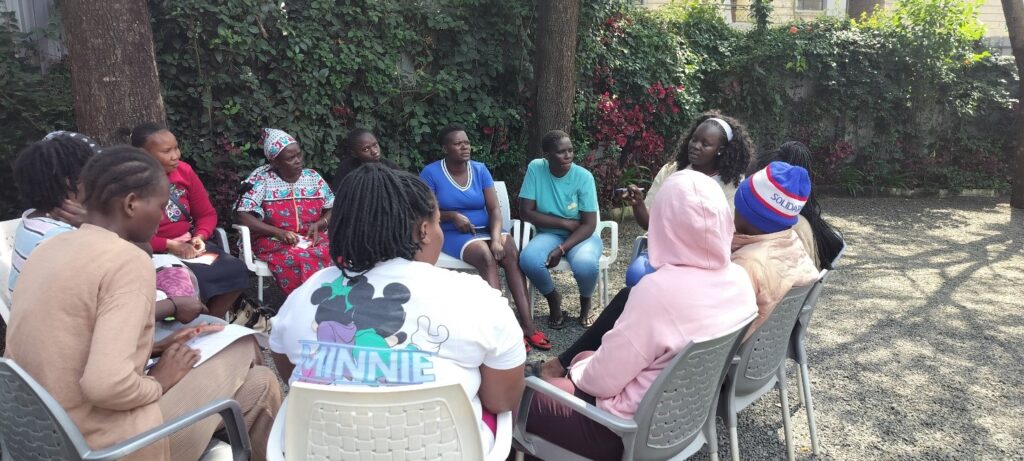
Moreover, by addressing the root causes of vulnerability, such as poverty and lack of education, the training module contributes to communities’ long-term sustainability and well-being. Beyond its immediate impact on trafficking prevention, the initiative promises to promote peaceful and sustainable communities. Shalom’s efforts pave the way for a future where every individual can live free from fear and exploitation by addressing the underlying inequalities and vulnerabilities that fuel conflict and exploitation.
In conclusion, the training on the prevention on the prevention of human and organ trafficking by Shalom-SCCRR stands as a beacon of hope in the fight against exploitation and injustice. By addressing the intersection of trafficking and the vulnerabilities faced by pregnant women and new mothers, the initiative not only saves lives but also paves the way for a brighter, more equitable future for all.
Author: Jacinta Nyambura BA (MA Candidate), Shalom-SCCRR In-Training Capacity Program
RELEVANT LINKS
- Domit, P. S. & Devine, P. (2024).Shalom Center For Conflict Resolution and Reconciliation (SCCRR): Addressing the Violence of Human and Organ Trafficking. https://shalomconflictcenter.org/shalom-center-for-conflict-resolution-and-reconciliation-sccrr-addressing-the-violence-of-human-and-organ-trafficking/
- Shalom-SCCRR. (2022). Shalom Empowerment Center (SEC) Addressing Violence against Women and Children: Concept Document.https://shalomconflictcenter.org/eastern-africa-shalom-empowerment-center-sec-addressing-violence-against-women-and-children-concept-document/
- Prof. Omoka. W. K and Devine, P. R. (2020). Human Rights are a Foundation of Shalom-SCCRR’s Conflict Resolution and Reconciliation Interventions.https://shalomconflictcenter.org/human-rights-are-a-foundation-of-shalom-sccrrs-conflict-resolution-and-reconciliation-interventions-2/
- Shalom-SCCRR. (2024). 2023 Shalom-SCCRR Results and Achievements. https://shalomconflictcenter.org/wp-content/uploads/2024/01/2023-Peacebuidling-Conflict-Transformation.pdf
- Shalom-SCCRR. (2024). 2009-2023 Shalom-SCCRR Results and Achievements. https://shalomconflictcenter.org/wp-content/uploads/2024/05/14-Years-of-Shalom-SCCRR-2009-2023-LV-Full-Report.pdf
- Shalom-SCCRR. (2024). 2023 Shalom-SCCR School/Educational Developments Results and Achievements.
- https://shalomconflictcenter.org/2023-shalom-sccrr-school-educational-developments-results-and-achievements/.
- Butler, J. (Oct, 2023). Harvard Kennedy School; A Conversation with Rev. Dr. Patrick Devine and Paula Soumaya Domit.https://shalomconflictcenter.org/wp-content/uploads/2024/01/Harvard_Kennedy_School_Article_WITH_PHOTOS_MAP_1_17_24_FINAL.pdf
- Devine, P. (2024). Chairman’s Report for 2023; Rev. Dr. Patrick Devine.https://shalomconflictcenter.org/chairmans-report-for-2023-rev-dr-patrick-devine/

